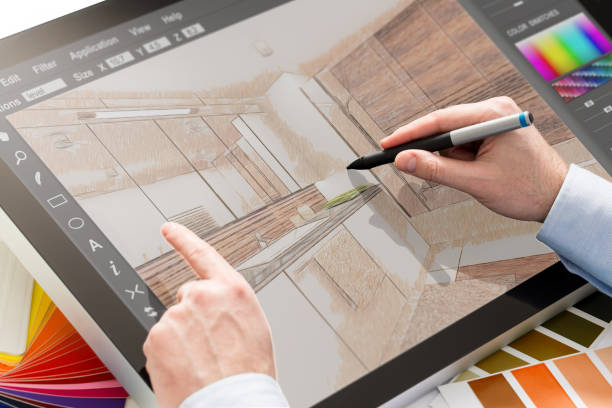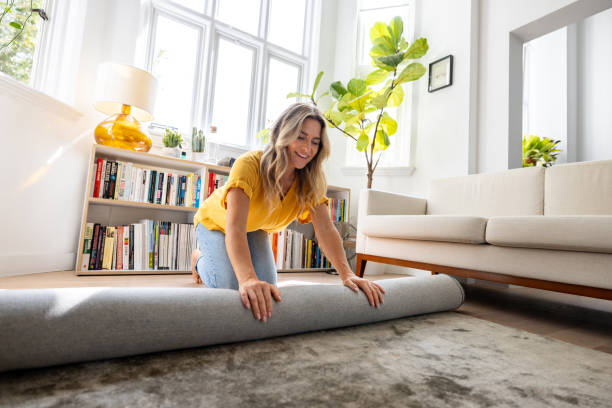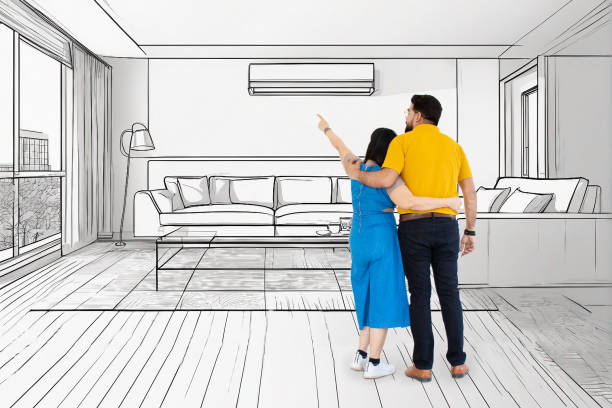When it comes to enhancing the look and feel of a space, many people often use the terms “interior designer” and “interior decorator” interchangeably. However, these two roles are distinct in their responsibilities, skill sets, and the scope of their work. Understanding the difference between an interior designer vs interior decorator is crucial for hiring the right professional for your project.
What is an Interior Designer?
An interior designer is a professional who specializes in designing functional and aesthetically pleasing indoor spaces. Their work goes beyond just the decorative aspects of a room and includes a deep understanding of architecture, furniture design, space planning, and building codes. Interior designers often work with clients to redesign or remodel entire spaces, ensuring that the layout, lighting, colors, furniture, and decor all work together harmoniously.
Interior designers are trained to assess a space’s functionality and make sure that the layout and design meet the needs of the occupants. They often collaborate with architects, contractors, and other professionals to create a cohesive design that integrates all elements of the space. Interior designers are typically involved from the very beginning of a project and provide a full design service, from concept to completion.

What is an Interior Decorator?
In contrast, an interior decorator focuses primarily on the aesthetic and decorative elements of a space. While interior designers have a broader scope that includes structural changes, interior decorators work with existing spaces to enhance their visual appeal. They help clients choose colors, fabrics, furniture, and accessories to create a specific style or mood in a room.
An interior decorator’s job is often to make a space look visually pleasing, stylish, and comfortable. They don’t generally engage in structural work like designing floor plans or making changes to walls and layouts. Instead, decorators focus on adding or rearranging furniture, selecting artwork, choosing wall colors, and updating home decor.
Key Differences Between Interior Designers and Decorators
Understanding the distinction between an interior designer vs interior decorator is important when deciding which professional to hire. Here are some key differences:
- Scope of Work:
- An interior designer deals with structural changes, space planning, and overall design of the space.
- An interior decorator focuses on aesthetics, including color schemes, furniture, and decor.
- Training and Expertise:
- Interior designers typically have formal education and training in design principles, architecture, and construction.
- Interior decorators may have training in design but usually don’t require formal education or certification.
- Project Involvement:
- Interior designers are involved from the start of a project and often collaborate with architects and contractors to ensure a seamless design.
- Interior decorators typically join a project once the space is constructed and focus on the finishing touches.
- Certifications and Licensing:
- Interior designers are often licensed professionals who must pass exams and meet specific qualifications to practice.
- Interior decorators are not required to have a license, but certifications are available to enhance their credibility.

Qualifications and Certifications: What Sets Them Apart?
The qualifications and certifications of an interior designer vs interior decorator significantly differ.
Interior Designers:
- Most interior designers have a degree in interior design or a related field.
- They may also be certified by professional organizations, such as the National Council for Interior Design Qualification (NCIDQ).
- Some interior designers are licensed, which means they have met the educational, experiential, and examination requirements set by the state or local government.
Interior Decorators:
- While interior decorators may have education or certification in design, it’s not mandatory.
- Many decorators gain experience through apprenticeships, courses, or workshops.
- Certification, such as from the Interior Design Society (IDS) or the Certified Interior Decorators International (CIDI), is available but not required by law.
Which Professional Do You Need for Your Project?
Choosing between an interior designer and an interior decorator depends largely on the scope of your project.
- If you’re looking to remodel your home or make structural changes, you’ll need an interior designer. They can work with contractors to adjust the layout, move walls, and optimize the functionality of your space.
- If you’re looking to update or refresh the look of your home by changing the furniture, colors, and decor, an interior decorator would be a great choice. They can help transform your space without making any permanent changes to the layout.
When deciding between the two, consider your budget, the extent of the changes you want to make, and the level of expertise needed for your project.

Conclusion
In conclusion, the roles of an interior designer vs interior decorator are distinct but complementary. While interior designers handle broader design and functional planning, interior decorators focus on adding style and flair to a space. Understanding the difference will help you choose the right professional based on your project’s needs.
If you’re ready to take your space to the next level, marketing technology can help guide you through the process. Marketing Technology offers SEO services and content marketing solutions to help your business grow and reach more clients. Whether you’re an interior designer, decorator, or related service provider, the right marketing strategies can enhance your visibility and attract the right customers.
Frequently Asked Questions:
When should you call an interior designer?
You should call an interior designer when you’re planning major renovations, remodeling, or when you need assistance with space planning, layout changes, or designing a functional and aesthetically cohesive environment.
What is the highest level of interior design?
The highest level of interior design involves working on large-scale commercial or luxury residential projects, often with a focus on architectural elements, structural redesign, and high-end finishes. It may also include the supervision of complex construction projects.
What type of interior design makes the most money?
High-end residential design, commercial interior design, and hospitality design (hotels, resorts, etc.) are typically the most lucrative types of interior design. These fields often involve larger budgets and more complex projects, leading to higher fees for interior designers.
By choosing the right professional for your needs and understanding the differences between interior designers and decorators, you can ensure that your project runs smoothly and turns out exactly as you envision.




